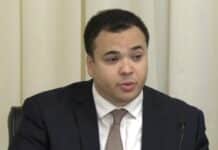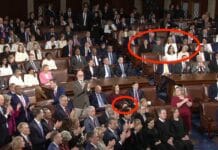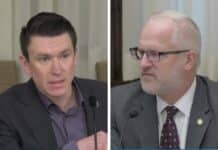
(The College Fix) — Aspiring kindergarten teachers at the University of Minnesota-Twin Cities can learn how to “re-imagine conceptions of growth and change in elementary schooling using other theoretical perspectives,” using “queer” and “feminist” views.
The class, “Critical Theories of Growth and Change in Elementary Education” also will use “culturally relevant” and “social class-sensitive” views,” according to the course description.
Students will “re-imagine conceptions of growth and change in elementary schooling using other theoretical perspectives,” the course description states. It is offered every fall and spring semester. The College Fix could not find the professor for this course due to technical issues with the class finder.
The education majors will also trace “how the role of the teacher and the curriculum have been constructed,” and use a “‘contingent, recursive’ conception of growth and change called for by socio-cultural theorist, Nancy Lesko.”
Lesko is a Columbia University education professor whose interests include “Conceptions of children and youth in theory and practice” and “Gender issues in education,” according to her faculty bio.
The grading basis is by student option, meaning that the student can choose between being graded as pass/fail or with the traditional letter system.
The Fix contacted multiple professors in the curriculum and instruction department for comment on this course. The Fix asked a professor who previously taught this course if it encourages teachers to use critical theory in classes, and how feminist or queer approaches could be used in elementary grades.
Professor Keitha-Gail Martin-Kerr has taught this class before and is the associate chair of the department. She did not respond to an email sent in the past two weeks, and The Fix could not reach her by phone.
According to her bio, Martin-Kerr’s research interests “live at the intersection of collective memory work, elementary education, teacher education, being Black, and living queerly.” Martin-Kerr is an “educator whose pedagogy centers on resistance to normativity and anti-oppressive pedagogy.” Her other courses include “Queer and Feminist Theories: Collective Memory Work” and “Culture, Power, and Education,” according to her faculty bio.
A fellow at the Ethics and Public Policy Center criticized the course in emailed comments to The Fix.
Nathanael Blake said the teachers and students should not employ critical theory, though its use is “pervasive throughout higher education.”
He said critical theory “is meant to train educators to view their work as disruptive and revolutionary.”
“Rather than passing on the knowledge, traditions and morals of American society, they are to view them as oppressive, and to seek to undermine them,” Blake said.
“At best teachers saturated in critical theories will be distracted from the work of teaching and likely to do a poor job of it,” Blake says, “and [at] worst they will seek to indoctrinate their students in these radical and anti-American ideas.”
University of Minnesota’s media relations director Andria Waclawski did not respond to an email and a voice mail left in the past two weeks that asked for comment about critical theory in education. Department chair Marek Oziewicz also did not respond to an email on March 19 that asked for a copy of the syllabus and the name of the professor teaching the class.
Oziewicz is the director of the Center for Climate Literacy, a professor of children’s and young adult literacy, and professor of literacy education.
According to his bio, he teaches a course on “Adolescent Literature, Youth Activism, and Climate Change Literacy,” which explains why climate change literacy is “a fundamental right for adolescents today” and how “literature can mobilize youth activism against ecocide.”
“I believe that our greatest challenge today is a transition to an ecological civilization and I explore how literature helps nourish universal climate literacy,” he explains in his faculty bio.
This article was originally published by The College Fix and reprinted here with permission.










